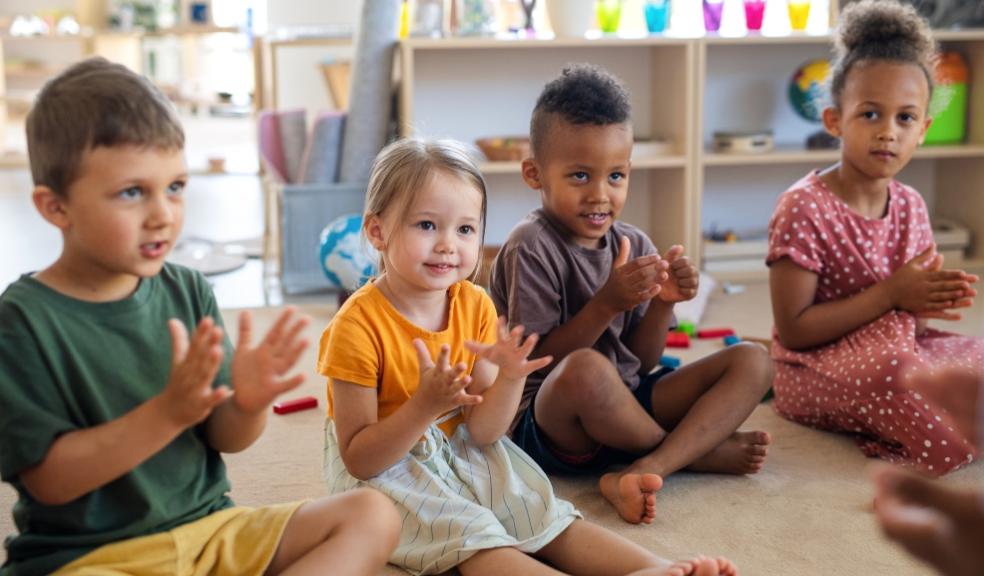
Early years curriculum should be celebrated as being unique and distinct from all other education
The curriculum delivered in early years education and childcare is more focused around what children are interested in learning rather than being prescriptive around the things they might need to learn, according to a new report.
However, rather than prompting concerns, the report’s authors say that is something which should be celebrated and preserved as it provides an inclusive and flexible approach that supports learning among younger children.
The Insights Into a High-Quality Early Years Curriculum report, published today (Friday), highlights how the early years curriculum is distinct from that found at every other stage of education.
The findings stem from a project conducted by academics at the University of Plymouth’s Plymouth Institute of Education and supported by Montessori Global Education.
It aimed to establish how children up to the age of five can get the most out of early years education, whether that is delivered at home, in day nurseries, or in their first months at school.
It also explored how early years educators can be best supported to provide this education and take advantage of existing and new best practice in teaching methods.
In their final report, the authors say that rather than setting out a course of study in line with nationally agreed guidelines, the early years curriculum is more iterative and responds to the needs and interests of individual children.
It cuts across subjects, topics and forms of knowledge in an integrated way, but teaching often emerges in the moment to support children’s expression and interests, the report shows.
In addition, it highlights how the professional knowledge of educators, and their ability to adapt at short notice and be confident in doing so, is essential in facilitating this unique and distinct model of curriculum.
Within the report, there is also a recognition of the importance of acknowledging the cultural contexts of children and the families and communities that they were from, signalling the importance of parental partnership.
Dr Verity Campbell-Barr, Director of the Plymouth Institute of Education, said: “The early years curriculum has previously been identified as an area of struggle, with concerns having been raised about its lack of coherence and consistency. However, our research found it delivers a holistic introduction to education that all children can benefit from irrespective of their background. Those we spoke to also felt that the curriculum was delivered very much as a partnership between educators, families and the children themselves. In that sense, its uniqueness from other forms of education – and the innovative and inclusive way in which it is delivered – is something that should be celebrated and preserved.”
Montessori Global Education commissioned the project as part of its ongoing efforts to reflect, monitor, challenge and support the important and topical issues relevant to the educational sector of the future.
The report has been published on the day of THE VIEW 2023 in Manchester; the first in its series of global conferences focused on education and social change.
Karen Chetwynd, COO of Montessori Global Education, said: “The process of exploring a varied representation of experiences from educators across the sector really highlights the universal commitment of early years education professionals to seek out the best possible learning structures for each and every child. This is not an easy job; that is clear – and the perception of educational delivery at the earliest stages of development as being anything other than well prepared, responsive, and largely tailor-made developmental journeys for children, does not do justice to the daily commitment made by those professionals working in early years provision.
“Lifelong learning interests and models for developing self-confidence, independence and resilience can blossom from a child’s secure belief that they will continue to encounter consistency and comfort within their educational experiences from their youngest years and beyond. Maintaining this commitment is the responsibility of the entire sector and we advocate for initiatives seeking to support educators and their training or development needs that arise in order to encourage focus on these areas. We welcome this report, as it starts to ask these important questions. We look forward to taking feedback from educators and look forward to the next steps in exploring curriculum developments and educator support for the future.”
Image from Shutterstock











